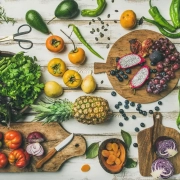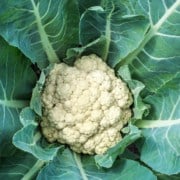New Research Shows Vegetables May Have Preventative Properties for Colon Cancer
In a study reported by Immunity, research showed that mice fed with lots of vegetables belonging to the Brassica genus had lower gut inflammations and benefitted from colon cancer protection. Researchers believe that the substance indole-3-carbinol (I3C) offered these benefits to the gut.
It is a widely accepted truth that veggies offer a lot of positive health benefits. However, the real mechanism behind how they provide health benefits is still not well-understood. This is the first study to establish evidence on the specifics of vegetable substances that prevent colon cancer and inflammation. It showed that I3C activates the aryl hydrocarbon receptor (AhR), a protein that causes epithelial cell differentiation when not stimulated sufficiently.
Reactions in the Gut
The AhR protein essentially works by dispatching signals from the gut linings’ epithelial cells to the immune cells. This then regulates the inflammatory response to the massive amounts of bacteria living in our stomach.
According to one of the research authors, Dr. Amina Metidji, mice who cannot activate or produce AhR in their stomach led to gut inflammation development and consequently led to cancer of the colon. These mice were genetically modified so that they cannot produce AhR. On the other hand, when these mice were fed with vegetables rich in IC3, they did not acquire gut inflammation nor colon cancer. Further, resulting tumors in the gut were few and were non-cancerous.
Moreover, when applied to stem cells that differentiated to mini-guts, the absence of AhR led to the failure of the stem cells to become specialized epithelial cells. These epithelial cells are essential for generating protective mucus and absorb nutrients. The stem cells divided uncontrollably—a precursor to cancer of the colon.
Colon Cancer Prevention
According to Dr. Gitta Stockinger, another author of the study, the effect of diet on colon cancer and gut inflammation is quite salient. We used to believe that a diet deficient in vegetables coupled with rich fats promote colon cancer. However, with the study, increased consumption of AhR promoting chemicals can mitigate the effects of insufficient AhR stimulation thereby preventing colon cancer and intestinal infections.
Although we cannot alter the genetic factors that intensify our risk for having cancer, the study shows a light at the end of the tunnel that we can moderate our colon cancer risk by embracing a diet rich in I3C found in vegetables.
The Optimal Diet
In the study, the mice were fed food that was calibrated to eliminate variables that may affect the study. This resulted in findings that suggest that even without genetic risk factors in mice if they are not fed vegetables, it still led to cancer of the colon for them.
Another cancer research expert, Professor Tim Key, commented that it isn’t just the fiber content of veggies that impart health benefits, but likewise, essential veggie substances that give protection against diseases—specifically in this study, against colon inflammation and cancer. So, eat more of Bok choy, Kale, Collards, turnip greens, Cabbage, Brussels Sprouts, Cauliflower, and the likes.
Inspired by www.sciencedaily.com







